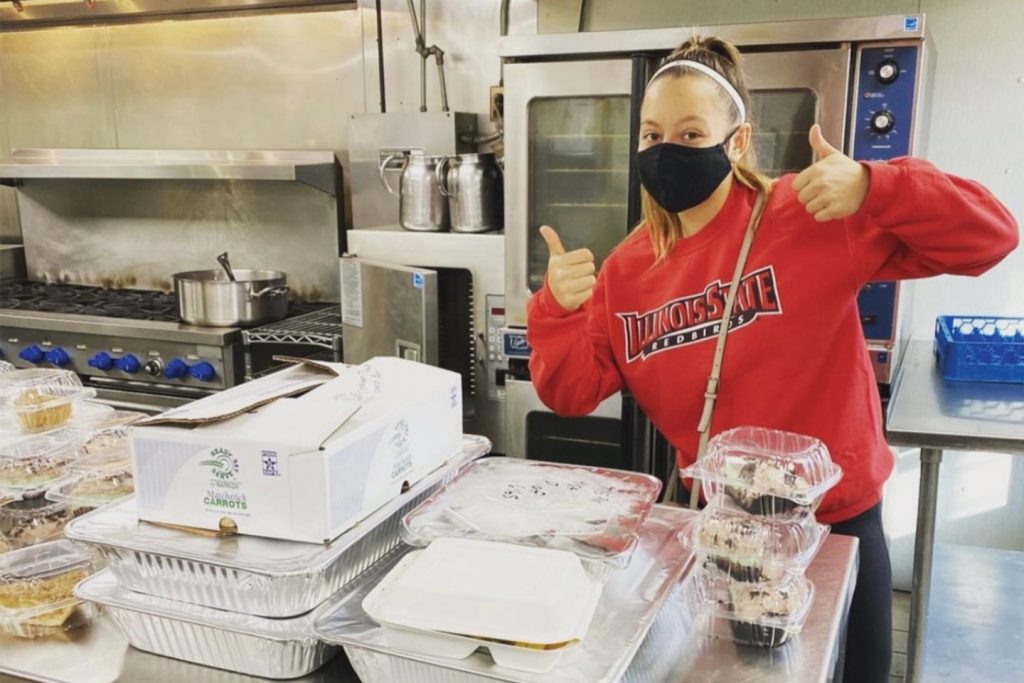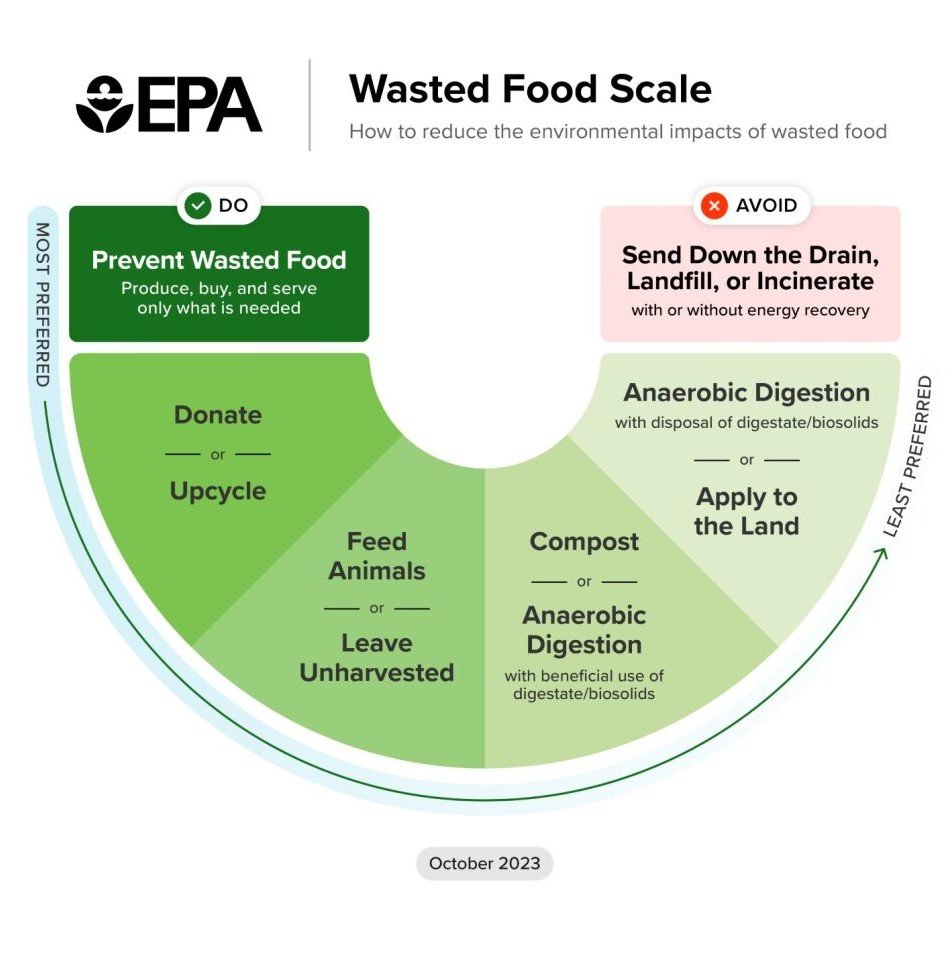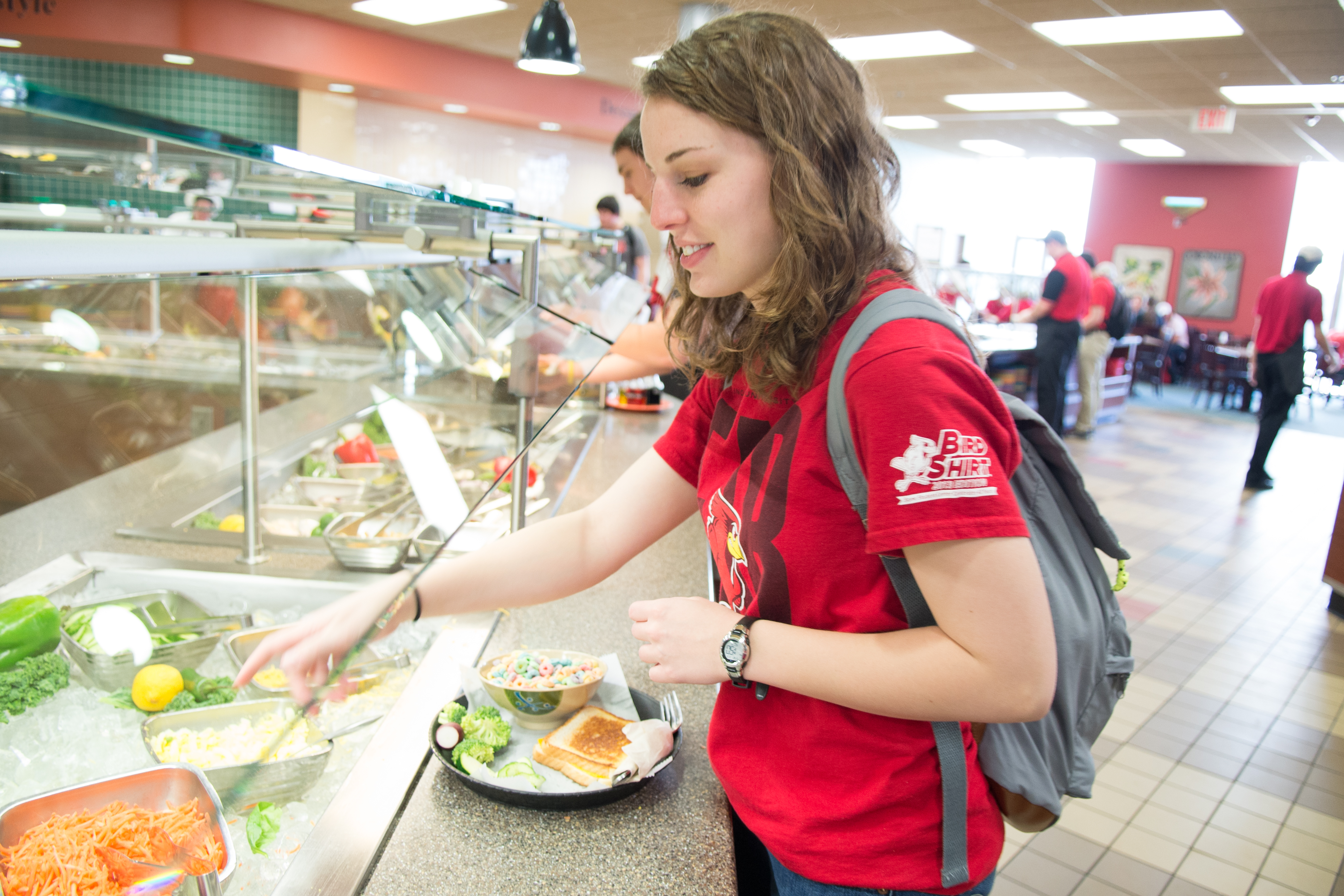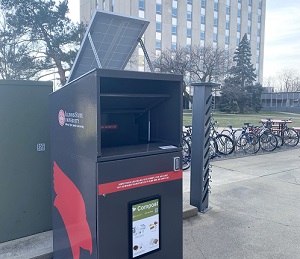Illinois State University’s Event Management, Dining, and Hospitality (EMDH) and the Office of Sustainability are participating in Food Waste Prevention Week the first week in April. This week of awareness seeks to educate the campus community about food waste.
The U.S. Environmental Protection Agency (EPA) approximates that over one-third of all the food produced in the United States is never eaten. They further estimated that in 2018 food waste made up over 24% of waste sent to landfills. While that doesn’t seem like much of a problem, when food waste is sent to landfills the food waste breaks down and generates methane gas, a very powerful greenhouse gas.
Many will be surprised to learn the many ways Illinois State is already working to divert food waste from landfill. From student organizations and the back-of-the-house operations in the dining centers and catering kitchens to the design considerations of the dining centers, food waste prevention has been at the forefront of campus food operations.

The Food Recovery Network, a registered student organization supported by University Catering, takes leftover food from dining centers that never reached buffet lines or customers and delivers them to local organizations such as Home Sweet Home Ministries in Bloomington. In 2020, Illinois State’s student chapter of the Food Recovery Network was the “Top Food Recoverer” by diverting over 2,100 pounds of food from the landfill.
For all leftover food that reaches a buffet line in the dining centers, waste from food preparation, and food that students and customers never finish, EMDH staff scrapes plates and sends all the leftover food to a food pulper that removes the water and shreds the food to be sent to a commercial composter called Better Earth Logistics.
Jeff Vargo, senior assistant director of EMDH, works a lot with Better Earth Logistics on composting and approximates that EMDH sends 576,000 points of organic and compostable materials to Better Earth each year. “Through our food waste composting program, we are able to minimize our landfill footprint as well as provide commercially available compost to provide vital nutrients back to the soil,” Vargo says.
This process, along with reusable plates, utensils, and cups and compostable take-out food containers mean that Illinois State’s dining centers are zero waste. Elisabeth Reed, director of the Office of Sustainability, explains, “zero waste is defined by diverting 90% or more of the waste consumed at an event or location from landfill by either using reusables, recycling, or composting.”
The campus community can also compost by utilizing one of three compost kiosks on campus. Located outside of Watterson Towers, at Milner Plaza, and outside of Tri-Towers, compost kiosks make it easier for campus community members to dispose of their food waste. Compost kiosks can be used by taking a short quiz to receive the access code to open the kiosk. All food waste and BPI-certified compostable products (including the take-out food containers from the dining centers!) can be put in the compost kiosks to be sent to Illinois State’s commercial composter Better Earth Logistics.
Of course, the best way to avoid food waste is to start with what is put on the plate at mealtime. “Our campus dining centers have been using trayless dining for years. This practice has been proven to reduce food waste from the beginning,” says Reed. “When there is less space to put food, less food is taken which means less food is wasted.”

Reed also encourages individuals to review and learn more about the Wasted Food Scale developed by the EPA: “When it comes to food and events on campus, our goal is to act responsibly and avoid waste. We use the Environmental Protection Agency’s Wasted Food Scale as our guide when planning and educating others on food waste.”
Students can learn more about the Food Waste Scale during Food Waste Prevention Week. EMDH is partnering with the Office of Sustainability to educate students on the positive impact wise food choices can have on food waste prevention in the dining centers. Vargo is especially looking forward to speaking with students: “We will be at Marketplace at Linkins dining center Monday, April 1, through Thursday, April 4, from 11 a.m. to 12:30 p.m. to educate students about the impact they can have in helping prevent food waste daily.”
For another opportunity to learn about food waste, consider attending the final Green Screen Film of the semester: Just Eat It! This documentary film follows two individuals as they feast for six months on only food that would otherwise be discarded. The film will be screened for free at the Normal Theater on Tuesday, April 23 at 7 p.m.


